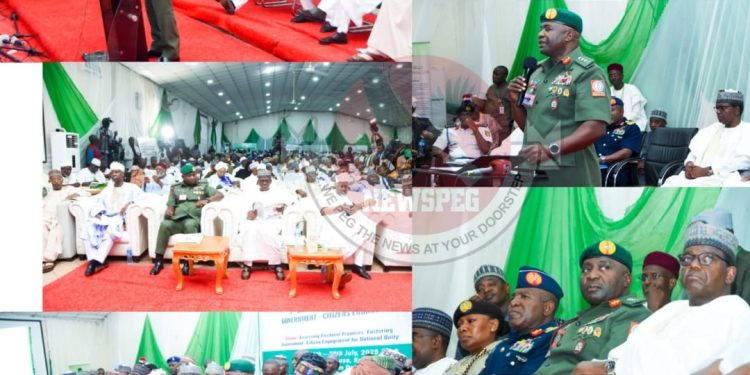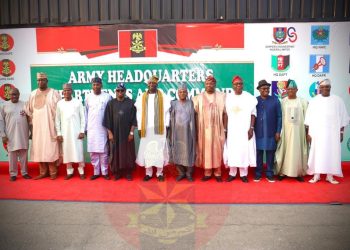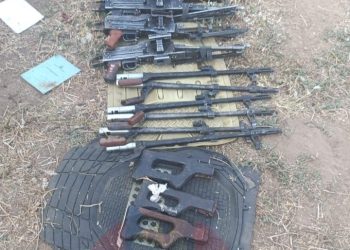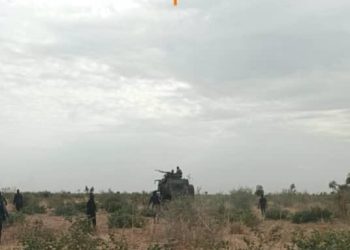By Nkechi Eze
In a renewed show of resolve to counter insecurity and foster peace in northern Nigeria, the Chief of Defence Staff (CDS), General Christopher Gwabin Musa, on Tuesday, July 29, 2025, outlined far-reaching efforts and strategic gains made by the Armed Forces of Nigeria (AFN) in the ongoing fight against insurgency, banditry, and other security threats across the region. The disclosure came during a high-level two-day interactive session on Government–Citizens Engagement, hosted by the Sir Ahmadu Bello Memorial Foundation in Kaduna.
The session, attended by northern leaders, scholars, civil society representatives, and security stakeholders, provided a timely opportunity to assess the federal government’s performance in the security sector. General Musa, appointed CDS in 2023, used the platform to give a sweeping overview of military progress under the security mandates of President Bola Ahmed Tinubu’s administration.
According to an official statement by the Director of Defence Information, Brigadier General Tukur Gusau, the CDS detailed significant institutional reforms and frontline gains, beginning with the establishment of the Joint Doctrine and Warfare Centre in Abuja and the dedicated Department of Training at Defence Headquarters. These institutions, he explained, have significantly improved inter-service coordination, doctrinal development, and readiness for modern warfare.
The Defence Chief further revealed that over 800 Special Forces operatives have graduated under his watch, with hundreds more currently undergoing training in Jaji and Nasarawa. These elite troops, specially trained to combat asymmetric threats, form a central pillar of the renewed military strategy in the region.
General Musa noted a major restructuring of military operations in the North-West, where existing efforts have been consolidated under Operation FANSAN YAMMA, a unified joint task force. As part of this framework, Defence Special Forces Brigades have been established in Kaduna and Niger States, alongside an expansion of sectors under Operations HADIN KAI and FANSAN YAMMA. He also highlighted the deployment of high-readiness units and the creation of new Forward Operating Bases to secure previously inaccessible terrain.
On operational outcomes, General Musa disclosed that the Armed Forces have neutralized over 3,000 terrorists and bandits in the last two years, while securing the surrender of over 120,000 insurgents and rescuing more than 2,000 kidnap victims. In terms of recovered assets, the military has retrieved more than 2,300 weapons and over 72,000 rounds of ammunition across northern theatres of operation.
Beyond combat victories, the CDS underscored the role of soft power in winning hearts and minds. Initiatives such as peacebuilding through community sports, civic reorientation, and strategic engagements with traditional rulers and state governors have helped build trust, facilitate dialogue, and encourage the return of internally displaced persons to their communities.
General Musa also revealed how the Armed Forces are contributing to economic recovery and empowerment, particularly in the North-East and North-West. He cited the establishment of ranches, schools, and ICT training centres, developed in line with the Federal Government’s local content policy. He acknowledged the Defence Industries Corporation of Nigeria (DICON), the Air Force Institute of Technology (AFIT), and other domestic defence entities for their expanding role in logistics support and military innovation.
On the international front, the CDS recounted his official visit to the Republic of Niger in August 2024, where he held bilateral security discussions with his counterpart to address trans-border threats and reinforce sub-regional peace. He also announced that Nigeria will host the African Chiefs of Defence Conference in Abuja from August 25 to 27, 2025. The summit is expected to advance continental dialogue and foster a unified African strategy to tackle cross-border insecurity and terrorism.
General Musa concluded his presentation with a call for sustained collaboration among all levels of government, traditional institutions, and the civil populace. He emphasized that restoring lasting peace to northern Nigeria requires not only military might but also an inclusive approach that strengthens community resilience and addresses the root causes of insecurity.
















